Ever wondered what pressure washer professionals use when the job’s bigger than a backyard deck? You’re not alone. We get asked every week — especially after someone nukes their brick wall or melts the paint off the ute tray with a cheap Bunnings blaster. The short answer? We don’t muck around with toy models. The long answer? Strap in.
If there’s grime, grease, or gunk, we’ve got the right gear for it. And today we’re spilling what actually works when it comes to professional pressure washers — especially the ones built for heavy-duty applications, commercial cleaning, and even industrial sectors.
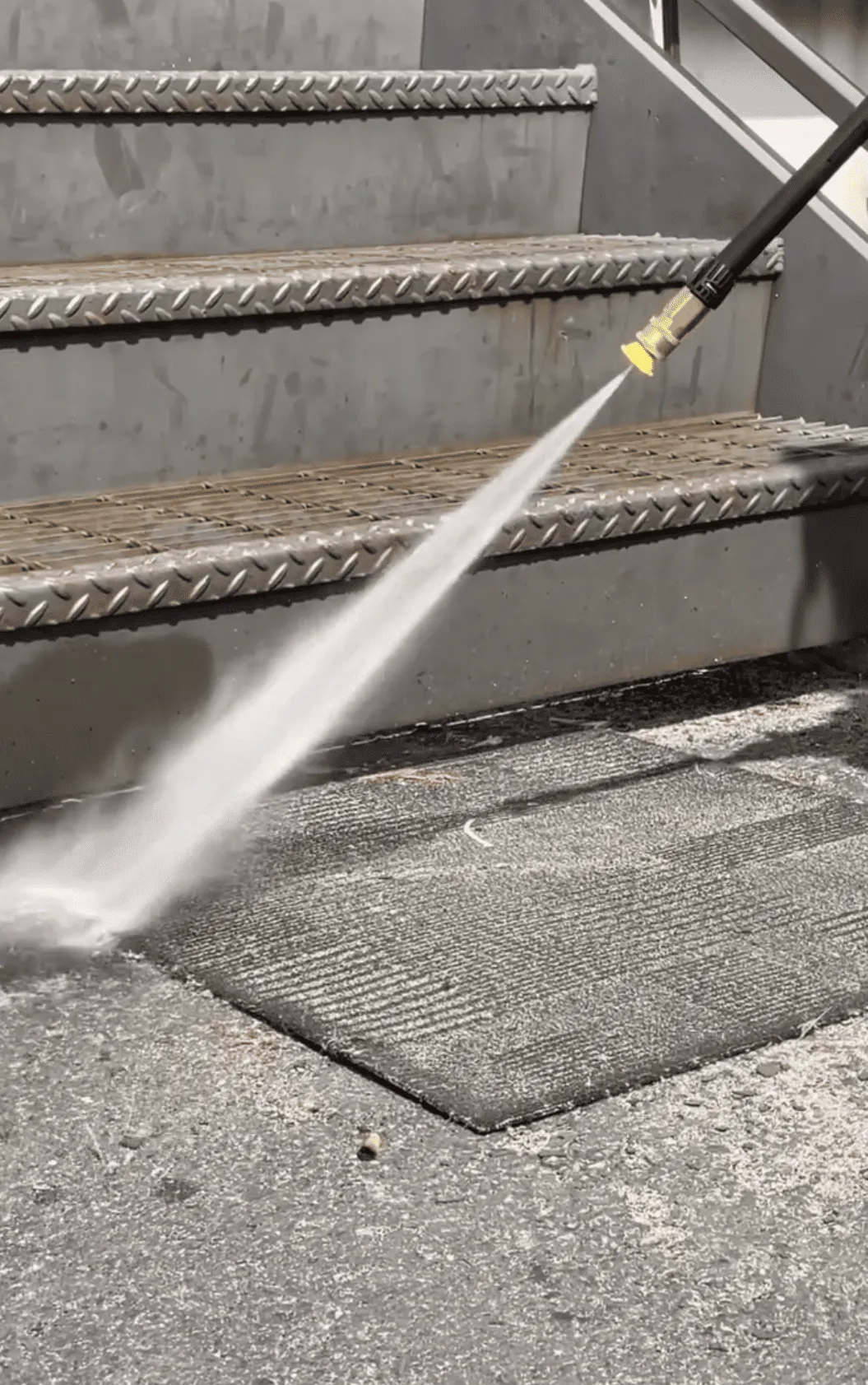
Different Jobs, Different Tools
Here’s what separates the pros from the punters:
- PSI (Pounds per square inch): Professionals look for 3000–4000+ PSI depending on pressure ranges and operating pressure required.
- Flow rate: Measured in litres per minute (LPM) — anything under 12 LPM isn’t going to cut it for serious work.
- Pump quality: Triplex pumps and brass pumps dominate. Leave axial pumps to the garden hose warriors.
- Water supply: Connected straight to mains, tanks, or industrial drums — with proper filtration, especially for agricultural machinery jobs.
- Cleaning efficiency: Faster flow = faster cleaning, better rinse, and less muck flying around your face.
We use pressure washers on a wide variety of outdoor surfaces — concrete driveways, delicate render, brick pavements, commercial kitchens, construction sites, and yep, even agricultural equipment.
What the Pros Use
There’s a time and place for each. Most tradies keep cold water pressure washers on the ute. Why? They’re lighter, cheaper, and paired with the right detergent, clean most stuff without needing heat.
But when you’re dealing with stubborn stains like oil, chewing gum, or grease from industrial machinery, that’s where hot water pressure washers or gas-powered pressure washers shine.
Cold Water Pressure Washers:
- Ideal for light-duty tasks, home exteriors, paths, and fences.
- Pair with chemicals for pressure washing to lift moss or mould.
- Great for delicate surfaces — with the right nozzle!
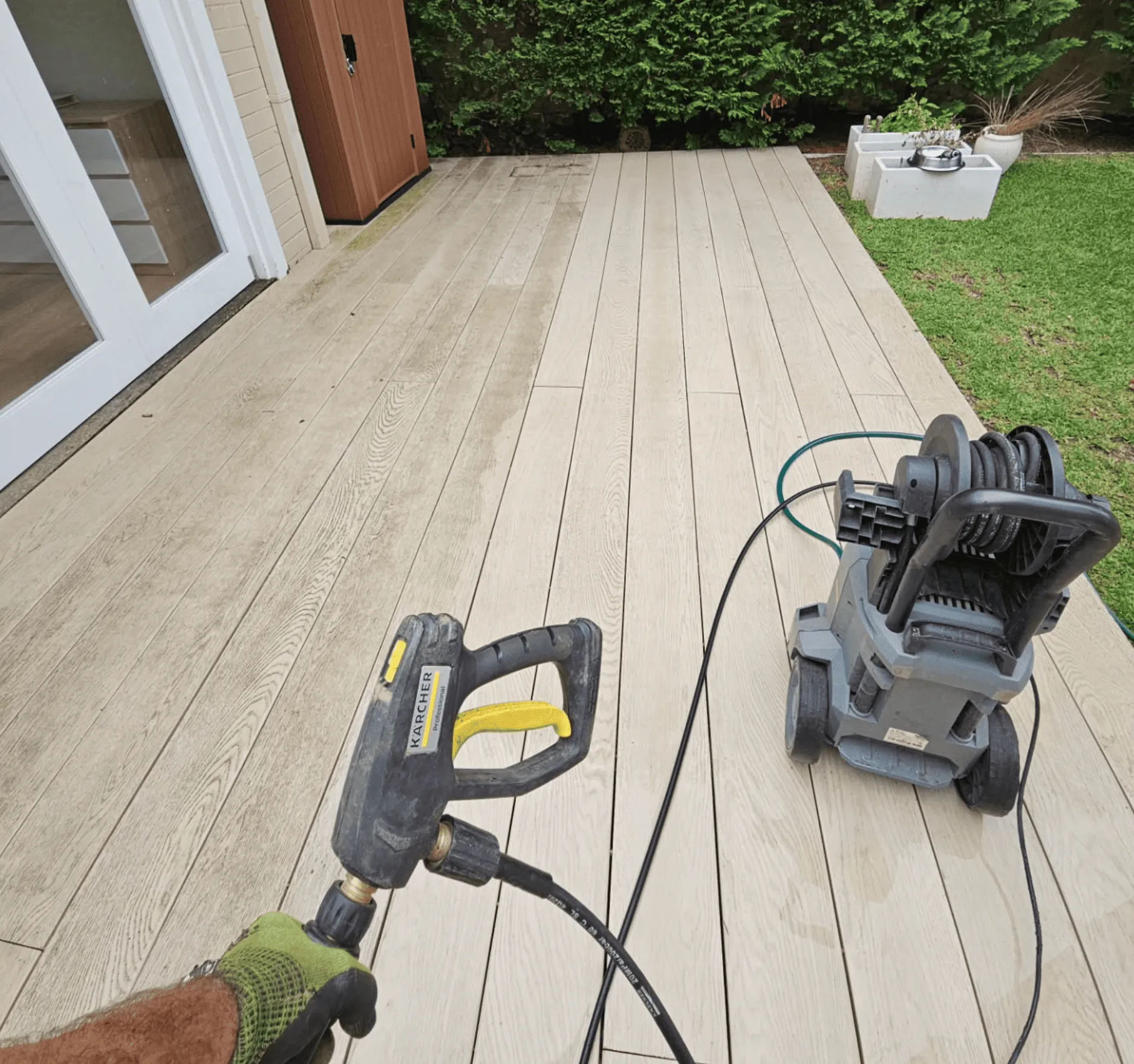
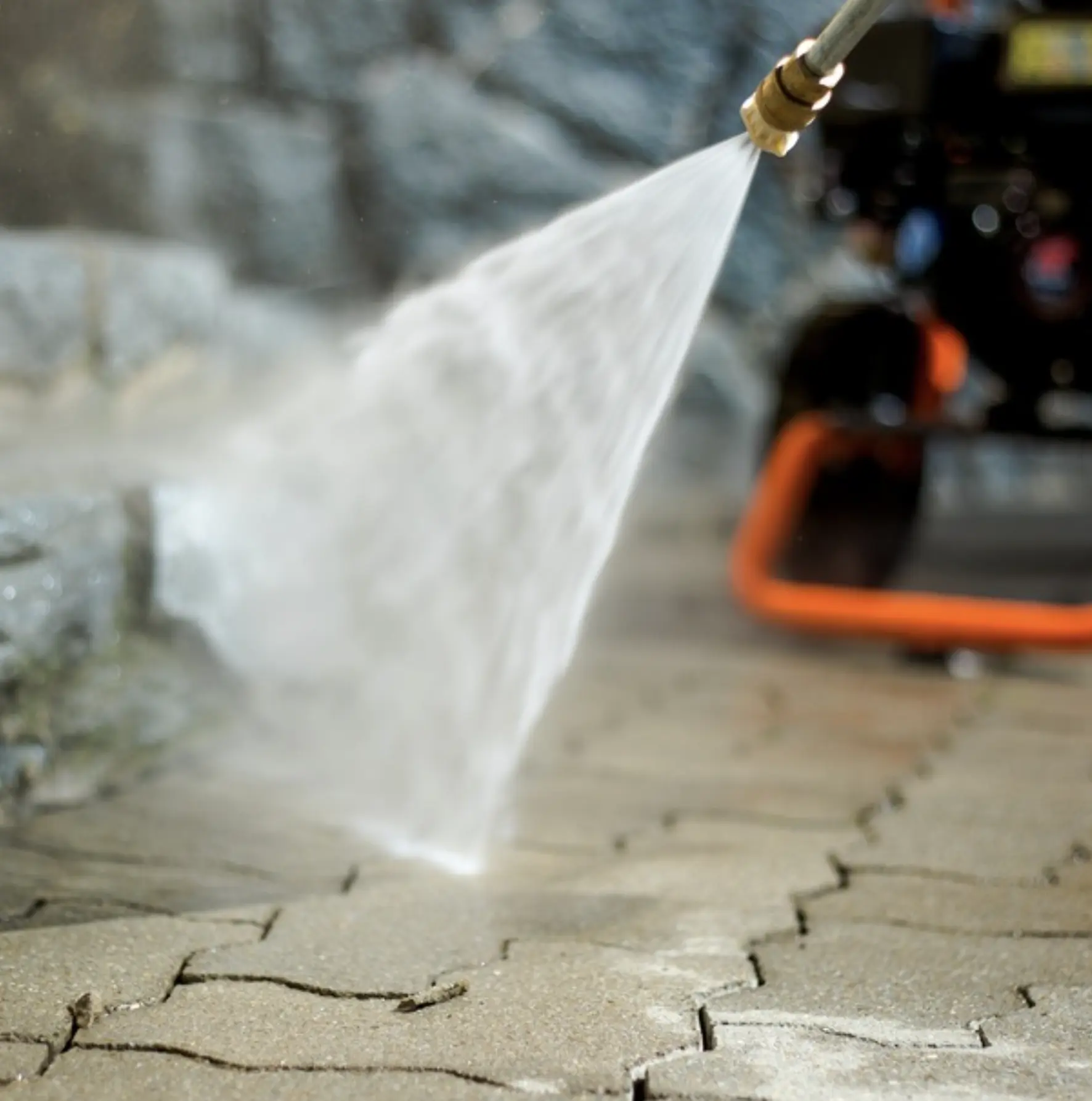
Hot Water Pressure Washers
- Required for heavy-duty jobs in the food industry, factories, and automotive cleaning.
- Cuts through oil stains and sanitises at the same time.
- Typically petrol-powered or high-voltage electric — needs a robust power supply and regular maintenance.
Here at Window Cleaning Melbourne Crew, we’ve pressure washed just about everything under the Aussie sun — from algae-covered garden furniture in the wet season to food industry floors that’d make your nose hairs retreat.
The Gear We Use
Commercial-Grade Pressure Washers We Rate:
| Brand | Model | PSI | Flow (LPM) | Notes |
|---|---|---|---|---|
| Spitwater | HP3523A | 3500 | 21 | Aussie-made, brilliant for outdoor power equipment |
| Jetwave | Hornet G2 | 4000 | 15 | Popular for industrial applications |
| Kranzle | K1152 TST | 1885 | 10 | Electric, quiet, high-quality for multi-spray nozzle use |
| Gerni Pro Series | 5000 | 2175 | 8 | Entry-level for commercial users |
| Aussie Pumps | Scud Series | 4000+ | 15–21 | Built like a tank with a detergent tank onboard |
Electric vs Petrol Washers
Petrol Pressure Washers:
- More cleaning power, more mobility.
- No power cord needed — run it anywhere.
- Handles tough dirt, brick walls, and industrial cleaning.
- Best for construction sites, commercial users, and heavy-duty cleaning.
- Downside? Noisy, bulky, and thirsty for juice.
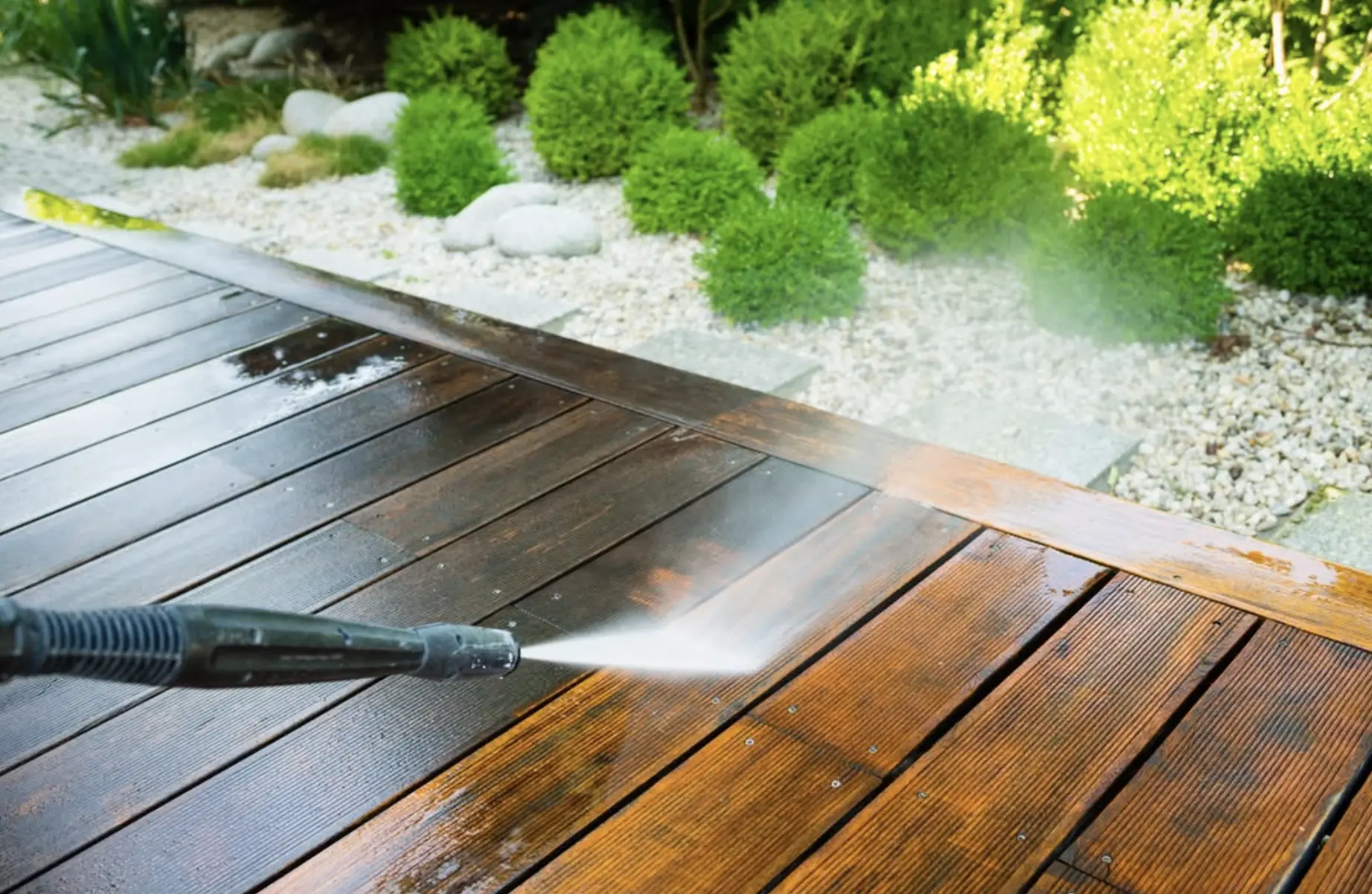
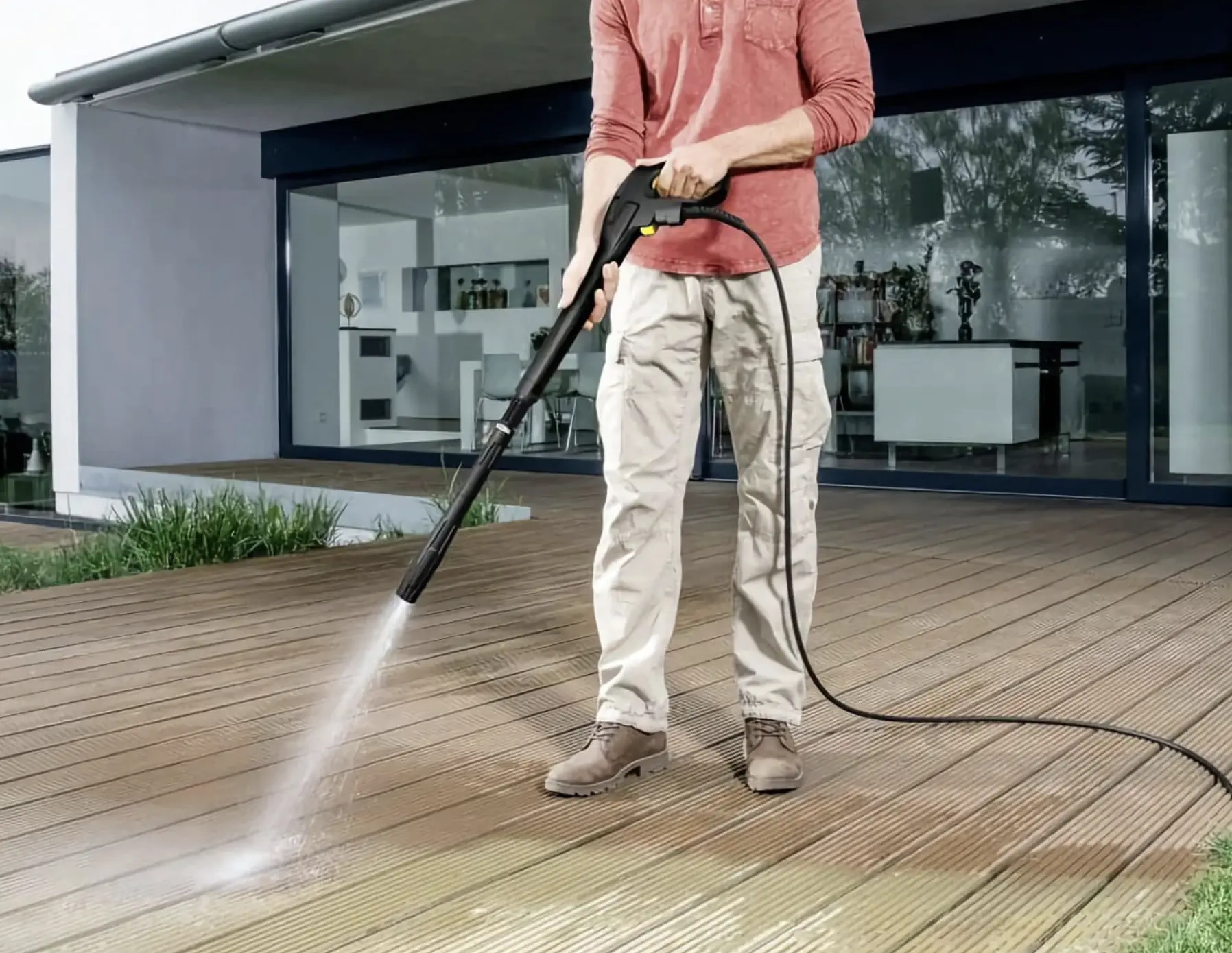
Electric Pressure Washers:
- Better for indoor or noise-sensitive areas.
- Some electric models like Kranzle or Bosch pressure washers perform well on compact models.
- Safer around water, assuming GFCI protected.
- Best for automotive industries, garden furniture, or light-duty cleaning.
- Downside? Limited motor wattage, shorter battery life (if cordless pressure washers), and tethered to a plug.
Pro Tip: We keep both in the truck. Petrol models do the grunt work, electric pressure washers cover finesse and quiet zones.
Accessories That Level-Up Your Cleaning Power
The base unit’s only half the battle. Without the right range of accessories, your cleaning efficiency will suffer. These extras save your back and get better results.
Must-Haves for Professionals:
- Surface cleaner – Essential for driveways, paths, and flat surfaces.
- Rotary nozzle / Turbo nozzle – Adds pressure through spinning action. Use it for stubborn dirt and tough tasks.
- Multi-spray nozzle / adjustable fan nozzle – Lets you adjust on the fly.
- Pressure washer lance – Reach high areas, keep your body safe.
- Soap cannon/foam cannon – Pre-soak with degreasers or detergents.
- Five-metre hose or six-metre hose – More reach, less moving the machine.
- Accessory storage – Don’t lose your tools in the ute tray again.
Pro tip: We also carry angled tools for gutters and hard-to-reach spaces, plus extra tools for specific job types.
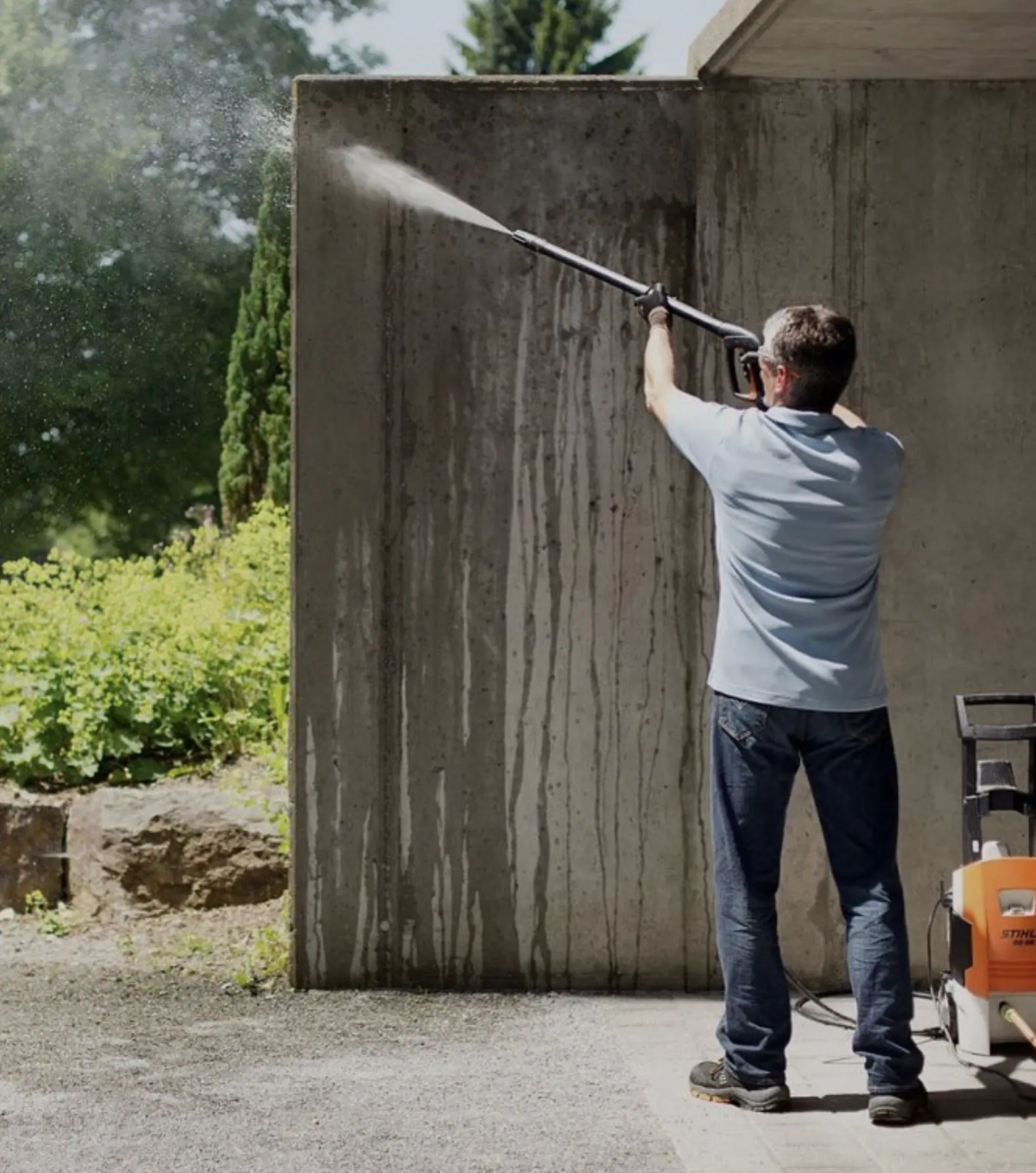
Essential Maintenance
These machines aren’t cheap. And they’ll conk out early if you don’t give them basic maintenance.
Weekly Tradie Checklist:
- Check oil levels in the engine & pump
- Clear the pump head and filter
- Inspect for cracks in the hose or fittings
- Drain any leftover detergent or bleach
- Run clean water after using a strong bleach solution or chemicals
Pro tip: If it’s gas-powered, check spark plugs and clean the air filter monthly. If it’s cordless, charge it properly and don’t leave it flat in storage.
What to Avoid
We’ve cleaned up after some shocking DIYs — and we’re talking accidental surface damage to delicate surfaces that cost thousands to fix.
Don’t Use Pressure Washers On:
- Coloured render or painted finishes (use soft wash instead)
- Loose brick mortar or old pathways (they’ll crumble)
- Timber decks with gaps — lifts the grain
- Roof tiles — unless you’ve got height gear and know what you’re doing
- Soft grout or limestone — just don’t
Use adjustable pressure, test first, and remember: high-pressure water can cut skin. It’s not a toy.
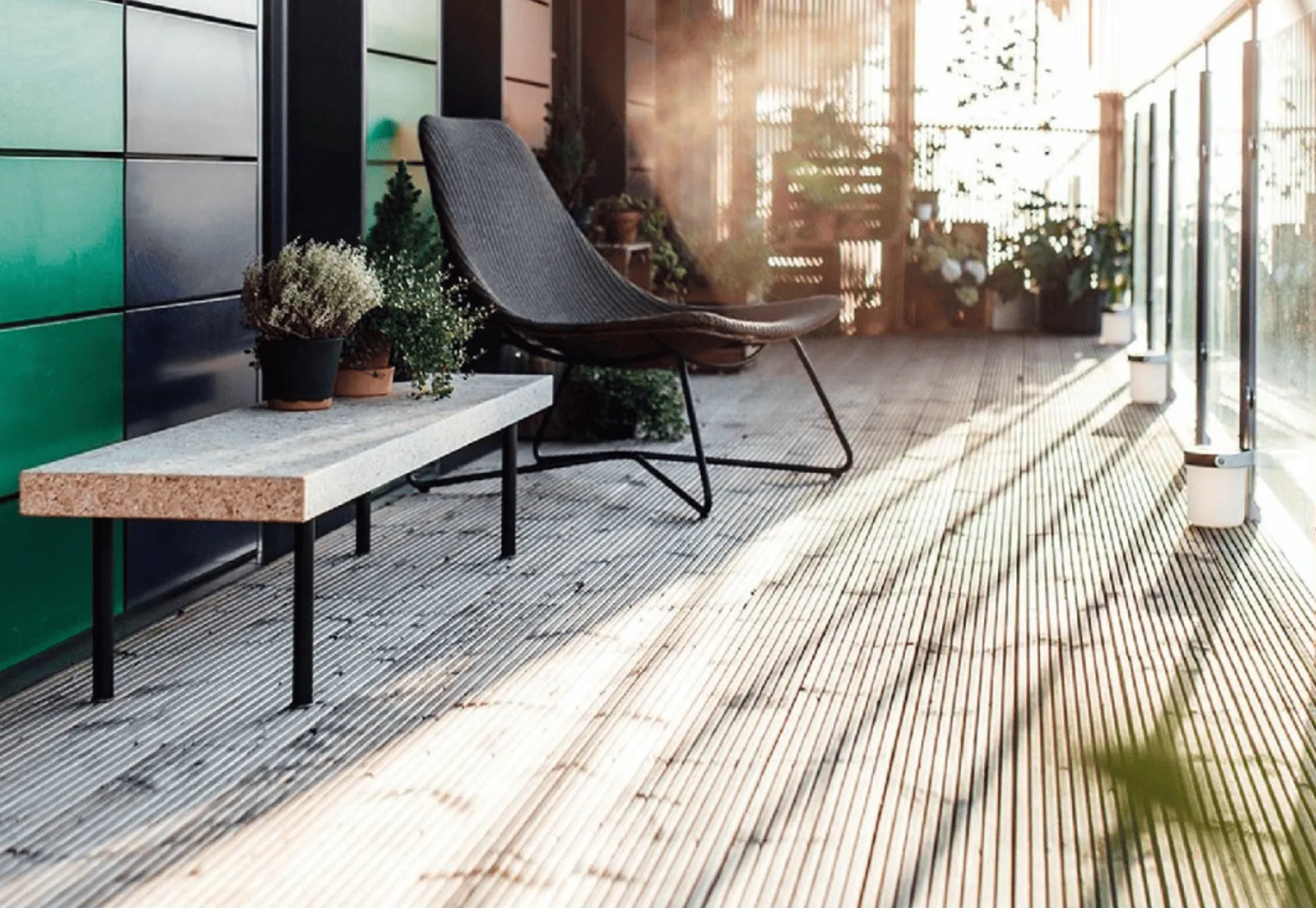
FAQ
What’s the best pressure washer for commercial use?
Go for a commercial-grade pressure washer like the Spitwater HP3523A or Jetwave Hornet. Look for 3500–4000 PSI and 15+ LPM for maximum power and versatility.
Are electric pressure washers good for professional work?
Yes — but only for certain jobs. Brands like Kranzle and Bosch have solid electric models. Great for automotive cleaning, indoor zones, or gentle cleaning on garden furniture and vehicles.
What’s the difference between residential and commercial pressure washers?
Commercial pressure washers have higher PSI, better flow, stronger pump heads, and can handle industrial cleaning tasks without blowing a gasket. Residential pressure washers are fine for light-duty tasks like rinsing the patio or algae on garden furniture.
How important is flow rate vs PSI?
Flow rate (LPM or litres per minute) determines how much water you’re moving — it’s key for faster cleaning and rinsing. PSI gives you the power pressure to lift grime. You need both for serious jobs.
What chemicals or soaps do professionals use?
We use acid for pressure washing, degreasers, surfactants, and soap bottles with low-pH formulas — never just water. Some jobs need alternative solutions, especially on industrial equipment.






